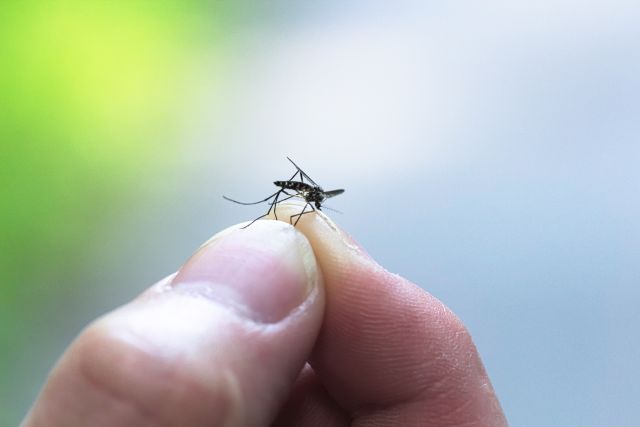Updated on August 27, 2024.
From time to time, an illness called eastern equine encephalitis (EEE) gets covered in the news. Transmitted by infected mosquitos, EEE is a serious disease that may cause brain and spinal cord infections, and, in some cases, death. While the infection can be life-threatening, it’s important to note: The illness is extremely rare in the United States.
Just seven cases were reported across the U.S. in 2023, according to the Centers for Disease Control and Prevention (CDC). Four cases have been reported in humans in 2024 by the CDC as of August 27, one each in Massachusetts, New Jersey, Vermont, and Wisconsin. One death from EEE was reported separately in New Hampshire by that state's health department on August 27.
Because of the risk posted by the virus, EEE can cause great concern in potentially affected areas. For example, in August 2024, after health officials in Massachusetts confirmed a human case of EEE in Worcester County, several localities in the state have taken measures to limit residents’ exposure to mosquitoes. Because mosquitoes tend to be most active at night, some areas have closed public parks and fields and restricted other outdoor activities from dusk till dawn. Several areas have also initiated mosquito spraying.
While the odds of developing EEE are low, here’s what you should know about this potentially fatal infection.
What is EEE?
In the U.S., most cases of EEE occur between late spring and early fall, and the virus is most commonly transmitted around freshwater hardwood swamps. Among the few human cases that occur each year, most are in eastern and Gulf Coast states and around the Great Lakes.
Anyone who spends lots of time outside—whether for work or play—is at higher risk, simply due to more mosquito exposure. People who visit, live, or work in swampy wooded areas have the highest odds. EEE is spread by mosquitoes. It doesn’t spread from human to human, or from animal to human, though some animals can contract the infection.
The vast majority of people infected with the EEE virus will not develop symptoms. Those who do will typically experience fever, body aches, pain in the joints, and chills within four to 10 days of being bitten by a mosquito carrying the virus.
Of those who develop symptoms, less than five percent will develop serious and life-threatening symptoms. According to the CDC, severe cases may involve headache, vomiting, diarrhea, seizures, behavioral changes, and drowsiness, which may progress into coma. Nearly a third of people who develop severe EEE will die. Over half of those who survive are left with neurological damage.
Can you prevent EEE?
There is no human vaccine to prevent EEE or specific medication used to treat the infection. The best way to avoid it is by avoiding mosquito bites.
If EEE has been detected in your area, consider staying indoors, particularly after dusk. If you are outside, use an insect repellent with active ingredients against insects such as DEET. Look for products with the Environmental Protection Agency (EPA) graphic, which means they’re both safe and effective. Dress in light-weight and light-colored clothing, including pants, long-sleeve shirts, and socks. It can help to treat your clothing, boots, and tents with 0.5 percent permethrin, an insecticide. Clothing already treated with permethrin can also be purchased.
At home, make sure screens fit securely into doors and windows. Take care to eliminate standing water—which mosquitos use as breeding grounds—around your home. Clean gutters and pools regularly, and drain pool covers after rainstorms. Dispose of or turn over outdoor items that can collect water, like used tires, wading pools, flowerpots, buckets, and other containers.
Though it’s very unlikely that you or your loved ones will develop EEE, a little extra attentiveness can lower the odds even more. As a bonus, you’ll reduce your chances of developing other infections spread by insects, too.







